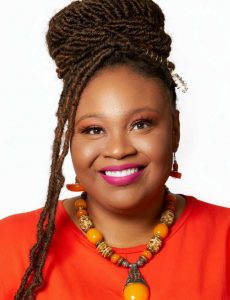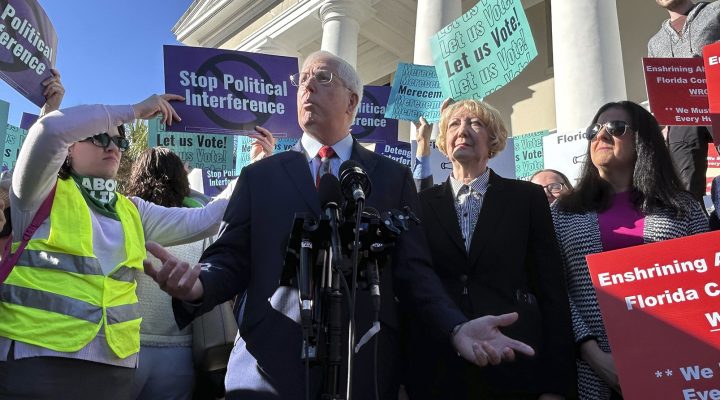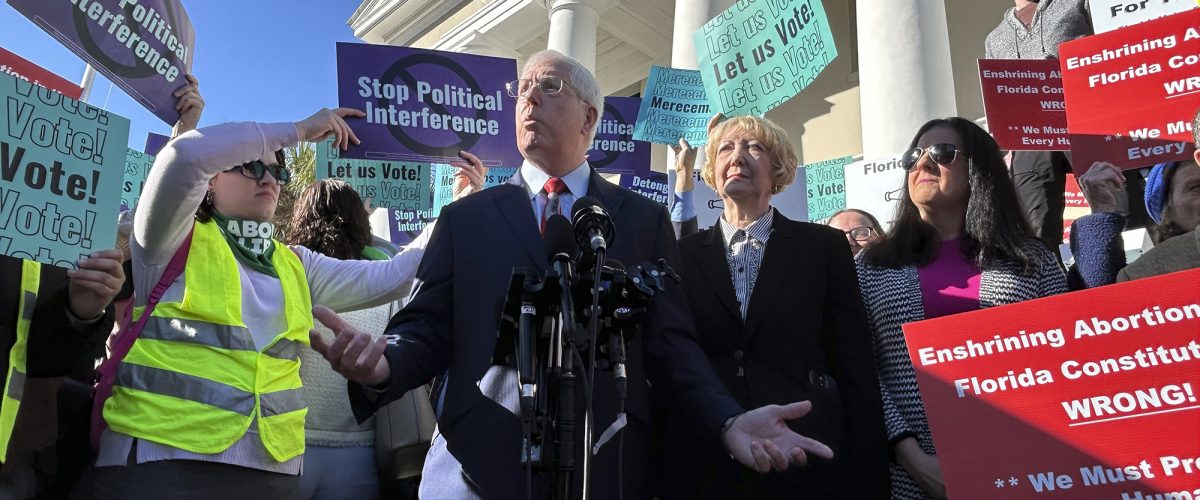The Florida Supreme Court has handed down two abortion rulings, one nearly banning the procedure and the other placing its ultimate fate in the hands of voters.
The April 1 decisions making way for a six-week abortion ban and a November ballot initiative on reproductive rights left both sides of the abortion debate feeling at once elated and deflated.
“The six-week ban is cruel. It just is. People’s decisions are taken away from them before they even know they are pregnant,” said Laura Goodhue, executive director of Florida Planned Parenthood. “And with OB-GYNs leaving because they cannot offer full scope of practice in our state, we are looking at a public-health crisis unless we can stop it in November.”
The Orlando-based Liberty Counsel, a conservative Christian legal ministry that supported the six-week ban in court hearings and amicus briefs, issued two very different statements about the rulings.
“Yesterday, the Florida Supreme Court agreed with our brief that there is no right to an abortion in the Florida Constitution,” the group said in one post, while in the other it blasted the ballot initiative as an effort to deceive Florida voters. “This amendment is not about protecting women. In fact, this amendment will throw women into back-alley abortion butchers.”
The court’s April 1 abortion-ban ruling in Planned Parenthood of Southwest and Central Florida v. State of Florida upheld the 15-week abortion restriction Florida legislators adopted in 2022. The decision triggered the May 1 implementation of the six-week limit Gov. Ron DeSantis signed into law last year.

The ruling reversed decades of Florida legal precedent granting constitutional protection to abortion rights as a matter of personal privacy. Citing the U.S. Supreme Court’s 2022 Dobbs decision invalidating federal abortion rights, the Florida justices faulted prior legal decisions for improperly conflating abortion rights with privacy rights as they said Roe v. Wade had done.
“This error led the (Florida Supreme) Court to read additional rights into the Constitution based on Roe’s dubious and immediately contested reasoning, rather than evaluate what the text of the provision actually said or what the people of Florida understood those words to mean,” the justices said. “The decision to extend the protections of the Privacy Clause beyond what the text could reasonably bear was not ours to make. As a result, we removed substantial authority from the people’s elected representatives to regulate abortion — a profoundly unique and complicated issue that affects society in many significant ways.”
Florida will join Georgia and South Carolina as the only states with six-week abortion bans, according to the Center for Reproductive Rights. Some states have 12- and 15-week bans in place, while more than a dozen have implemented outright bans on abortion.
Goodhue said the six-week limitation will induce great hardship throughout the state. “Having just six weeks really takes away people’s options. It cuts off your timelines and handicaps doctors and patients. It’s important for people to know that lives are at stake.”
Further legal action, while being considered, is doubtful because the the focus of the challenge was exclusively on privacy provisions in Florida’s constitution. “At this point our best option is winning in November,” she explained.
However, the court’s decision to place the amendment before citizens is a huge setback for DeSantis and Attorney General Ashley Moody who, along with Republican legislators, strongly opposed such an outcome.
There are indications a majority of voters may favor the more generous measure, which reads: “No law shall prohibit, penalize, delay or restrict abortion before viability or when necessary to protect the patient’s health, as determined by the patient’s healthcare provider.”
A March survey by the University of North Florida’s Public Opinion Research Lab found 75% of Florida voters strongly or somewhat oppose the state’s six-week abortion ban, compared to 22% who strongly or somewhat support it. Public Religion Research Institute polling after the U.S. Supreme Court’s 2022 Dobbs decision showed 65% of Americans prefer abortion to be legal in some way.

Sheena Rolle
The nearly 1 million signatures collected to place Amendment 4 on the Nov. 5 ballot are further proof of potential popular support, said Sheena Rolle, chief strategy officer with Florida Rising, a partner in the pro-initiative coalition headed by Floridians Protecting Freedom.
“It’s interesting that, simultaneously, you have a small collection of legislators pushing a six-week ban at the same time you have an opportunity for voters to say we get to decide about our rights and our bodies,” she said.
Proponents of the amendment weren’t surprised by the state Supreme Court ruling because the ballot language and signatures were thoroughly vetted before being presented for ballot approval, Rolle said. “It would only be a surprise if there had been some kind of decision not to follow the law. It was so obvious there was no real legal argument against placing it on the ballot.”
The ruling took no issue with the language: “Voters can see and decide for themselves how the specificity of the proposal’s terms relates to the proposal’s merits. … And there is no basis for concluding that the proposed amendment is facially invalid under the United States Constitution.”
In the coming months, Floridians will see a grassroots door-knocking campaign, voter pledge drives and efforts to turn out the vote to see Amendment 4 passed, Rolle said. “Floridians can have their voices rise above these legislators if they show up to vote. The outcome rests with the people.”
Related articles:
The evangelical campaign against abortion faces three big pushbacks this year | Analysis by Rodney Kennedy
SBC agency vows to ‘advocate for the complete end of abortion’ in America | Analysis by Mark Wingfield
GOP abortion laws are wildly out of step with many evangelicals’ convictions | Analysis by David Bumgardner


